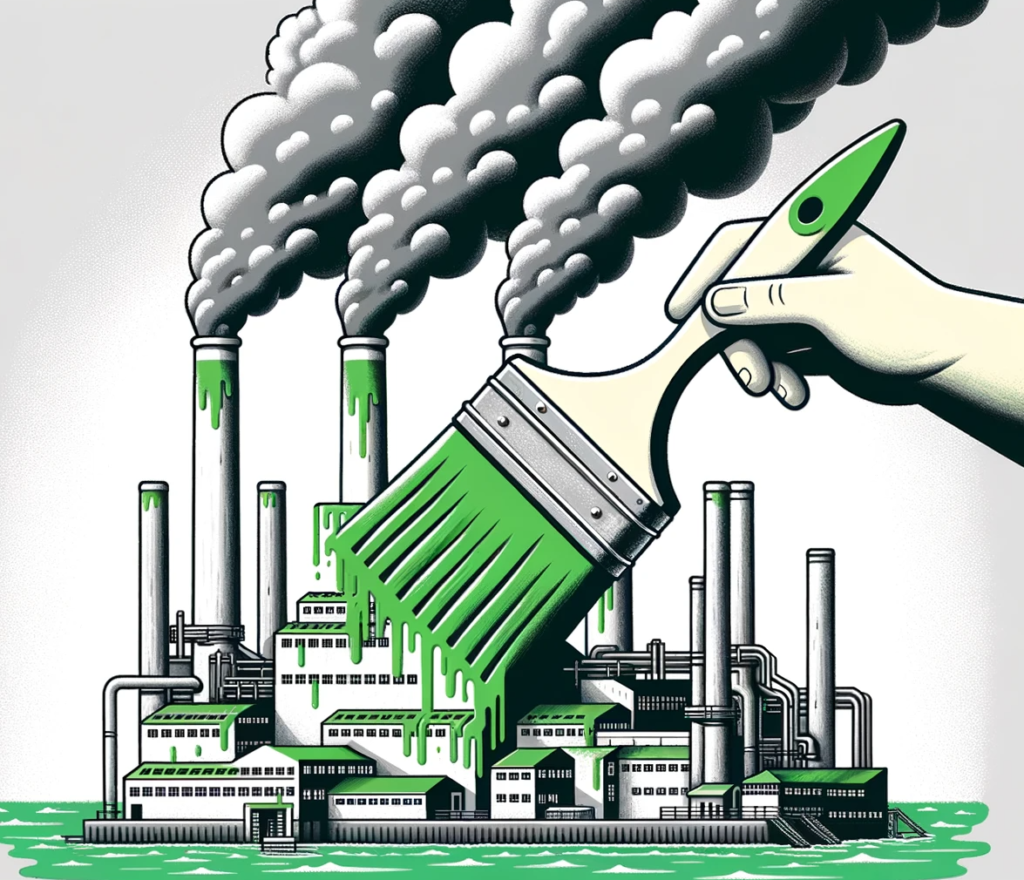
What is Greenwashing?
Greenwashing is a deceptive marketing practice where companies or organizations exaggerate or falsely claim their environmental efforts or sustainability practices to appear more eco-friendly than they really are. This tactic misleads consumers who want to make environmentally conscious choices, as it creates a false impression of sustainability.
The Rise of Greenwashing
With increasing awareness about climate change, pollution, and environmental degradation, consumers are more inclined to support brands that demonstrate a commitment to sustainability. In response, many companies have adopted green marketing strategies. Unfortunately, some take advantage of this trend without making substantial changes to their practices.
Greenwashing has surged in various industries, from fashion and food to technology and cosmetics. Brands often use vague terms, misleading labels, and superficial claims to project an image of sustainability while continuing harmful practices behind the scenes.
Common Tactics Used in Greenwashing
- Vague Claims: Using ambiguous phrases like “eco-friendly,” “green,” or “natural” without providing concrete evidence or specific details about their sustainability efforts.
- Irrelevant Claims: Highlighting minor environmentally friendly features of a product while ignoring more significant environmental impacts. For example, a company may promote a product as “CFC-free” when CFCs are already banned.
- Misleading Labels: Creating labels or certifications that sound impressive but lack third-party verification. This can confuse consumers into thinking a product is certified green when it is not.
- Imagery and Branding: Using nature-related imagery, colors, or terms in branding to evoke a sense of environmental responsibility without backing it up with genuine efforts.
- Overstated Benefits: Exaggerating the environmental benefits of a product or service, making it seem much more sustainable than it is.
Impacts of Greenwashing
Greenwashing has several negative consequences:
- Consumer Distrust: When consumers realize they have been misled, they may become skeptical of all sustainability claims, reducing trust in genuinely eco-friendly products.
- Hindrance to Real Change: Companies that engage in greenwashing may avoid making the necessary changes to their practices, believing that marketing alone is enough to satisfy consumer demand for sustainability.
- Competitive Disadvantage: Genuine sustainable companies may struggle to compete with those that greenwash, undermining their efforts and potentially leading to a market where sustainability is undervalued.
How to Identify Greenwashing
To avoid falling victim to greenwashing, consumers can adopt the following strategies:
- Look Beyond the Buzzwords: Be cautious of vague terms like “natural,” “eco-friendly,” or “green.” Real sustainability is more than just a label. If a product claims to be these things, look for details about how or why.
- Check for Trusted Certifications: When you see labels like “organic” or “sustainable,” make sure they come from well-known organizations
- Avoid Being Fooled by Pretty Packaging: Green-colored packaging or pictures of leaves and flowers don’t automatically mean a product is sustainable. Check what’s written, not just how it looks.
- Assess the Whole Product Lifecycle: Consider the entire lifecycle of a product, from sourcing and manufacturing to packaging and disposal. This holistic view can help identify whether a product is truly sustainable.
Conclusion
Greenwashing is a significant challenge in the pursuit of genuine sustainability. As consumers, it is crucial to remain vigilant and informed about the claims made by brands. By demanding transparency and holding companies accountable for their environmental impact, we can help foster a marketplace where real sustainability efforts thrive, ultimately benefiting the planet and future generations.
With the rise of social media and accessible information, consumers have the power to challenge greenwashing practices and support businesses that prioritize genuine sustainability. Together, we can push for a greener future built on authentic and responsible choices.
